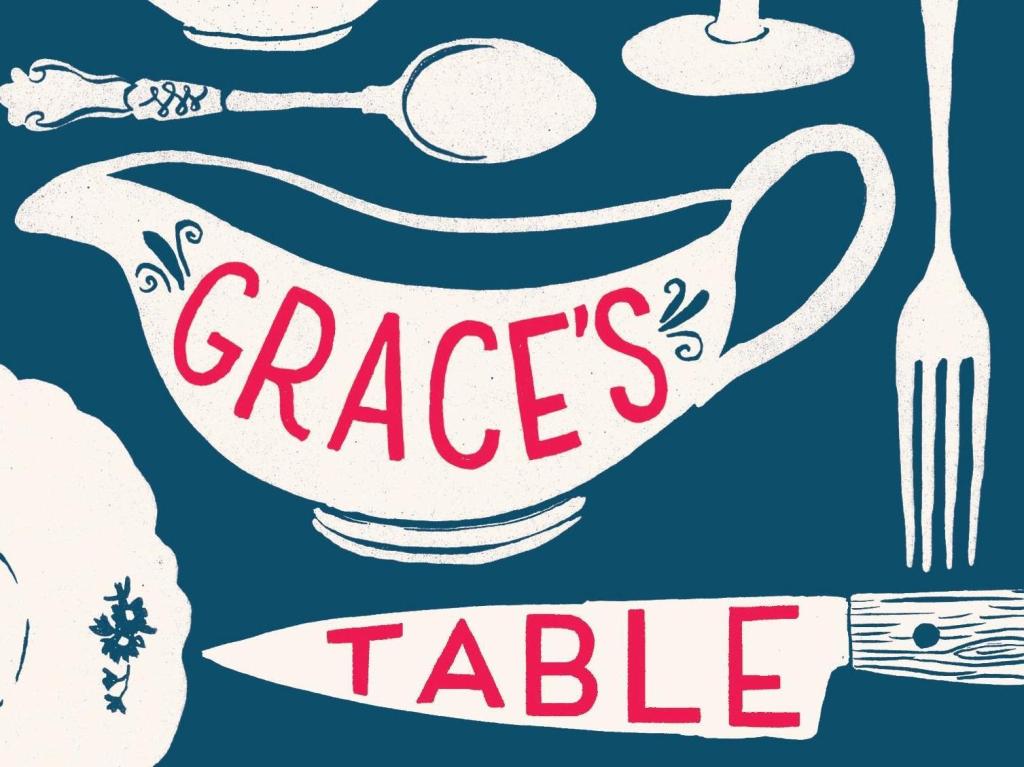‘Lamb. Mangoes. They’re all bringing back old memories’, Grace says early in Sally Piper’s novel. Grace is speaking to her unrelentingly unsympathetic daughter, Susan, while they prepare a meal for 12 to celebrate Grace’s 70th birthday, but her comment also serves as a simple description of how Grace’s Table works: throughout the novel, many, many present moments will induce Grace to privately reflect on her past.
If it’s not the most sophisticated approach to storytelling, Grace’s Table is still eminently readable, especially if your taste runs to foodfic. Because a great deal of those present moments – as well as several historical ones – relate to food, your appreciation of the novel could well hinge on how enamoured you are of descriptions of how the aforementioned lamb ‘erupted in a firework of fat’ when Grace removes it from the oven or the ‘sweetened apple oozing’ from the sides of a pie (do not read this book while hungry). It’s also refreshing to read such appetising evocations of food and its preparation that are so distinctively Australian in flavour.
It’s a shame, though, that a few of the key characters who surround Grace are not brought to life with quite the same vibrancy as the food Grace serves them. The close third-person narration ensures that everything is seen through Grace’s eyes – a fact harnessed to great effect in the novel’s compelling and genuinely moving ending – but it should still be possible to hint, earlier than Piper in fact does, at greater depth to characters like Susan and Grace’s late husband, Des, even if Grace herself is at best ambivalent about them; a couple of Grace’s grandchildren and friends admittedly fare better.
But, as the title might suggest, this is very much Grace’s story and she is certainly an authentic and fully realised character. From her rural childhood to her first love, from her work as a nurse and her marriage to Des, and through Grace’s observations and close relationships as well as her cooking, Piper vividly brings this woman to life, and in doing so imparts some interesting commentary on everything from Australian small-town racism to the differences in women’s lives over four generations.
So the novel has its flaws – the past and present could be more artfully intertwined, some characters could be better fleshed out, and the withholding of one crucial fact until late in the piece feels contrived if not downright detrimental to the narrative’s power. But Piper’s talent for description, her understated humour (Jorja and Jaxon, Grace muses at one point over two of her grandchildren, will ‘be spelling their names out to others for the rest of their lives’) as well as the sudden sharp insights that pepper the novel throughout all combine to demonstrate why UQP took a chance on this emerging talent, and they should be applauded for doing so. Grace’s Table is good rather than great, but its stronger elements suggest it’s also likely a harbinger of great work to come. This is a first novel after all and, to Piper’s eternal credit, at least it’s not thinly disguised autobiography as so many first Australian novels are.
Rating: 3 out of 5 stars
Grace’s Table
By Sally PiperPaperback
304 pages
$22.95
9780702250040
UQP





